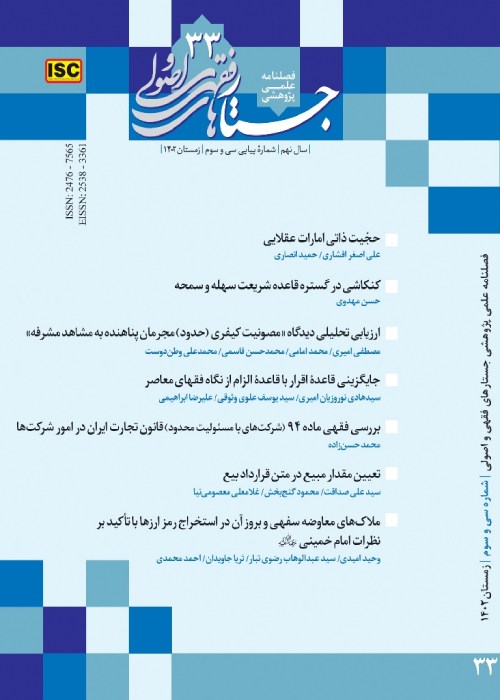The Conclusiveness of the Authenticity of the Quran Generalities from the Viewpoint of Islamic Schools of Thought
In Usul al-Fiqh (principle of Jurisprudence), it is well known that arguments and proofs are classified by jurists into conclusive and non-conclusive. Quran generalitiesare considered by Muslims as being conclusive in terms of its chain of transmission. However, their implications have long been widely disputed by Muslim scholars and jurists. While contemporary Shiite jurists have taken the Quranic generalities as non-conclusive and thus have not discussed it much, the Sunni jurists have addressed this issue in several books. According to most Sunni and Shiite jurists, the generalities of the Quran are considered valid presumptions. Contrary to this view, some Shiite Ulama such as Sheikh Mufid, Sayyid al-Murtaza, Sheikh Tousi, and some contemporary jurists on the one hand, and some Sunni jurists such as Shatibi, Ibn Taymiyyah, and most of Hanafi jurists and Mu'tazila on the other hand, argue that implications of the generalities are conclusive. As found through induction, there are three reasons for the conclusiveness of the generalities' implications:1) the impermissibility of delay in the exposition from the time of speech; 2) conclusiveness of the used implications; and 3) the implication of the intended subject. This study sought to elaborate on the topic through the comparative analysis of the views expressed by Shiite and Sunni jurists in this regard. It appears that the views concerning the conclusiveness of the generalities' implications are strongly backed by reason and all the three reasons presented are defendable and justified. According to those reasons, disconnected particularizersare contrary to the Arabic Language's rhetoric because based on Arabic Language's grammar, the speaker could not intend to convey a meaning opposite to what is signified by a word. Therefore, deviation from this principle may result in ignorance, deception, an obligation to the impossible and, the uselessness of speech. Keywords: Implication, Generalities, Conclusiveness, delay the exposition, Used implications, Signification, Arabic Language and literature.
- حق عضویت دریافتی صرف حمایت از نشریات عضو و نگهداری، تکمیل و توسعه مگیران میشود.
- پرداخت حق اشتراک و دانلود مقالات اجازه بازنشر آن در سایر رسانههای چاپی و دیجیتال را به کاربر نمیدهد.


